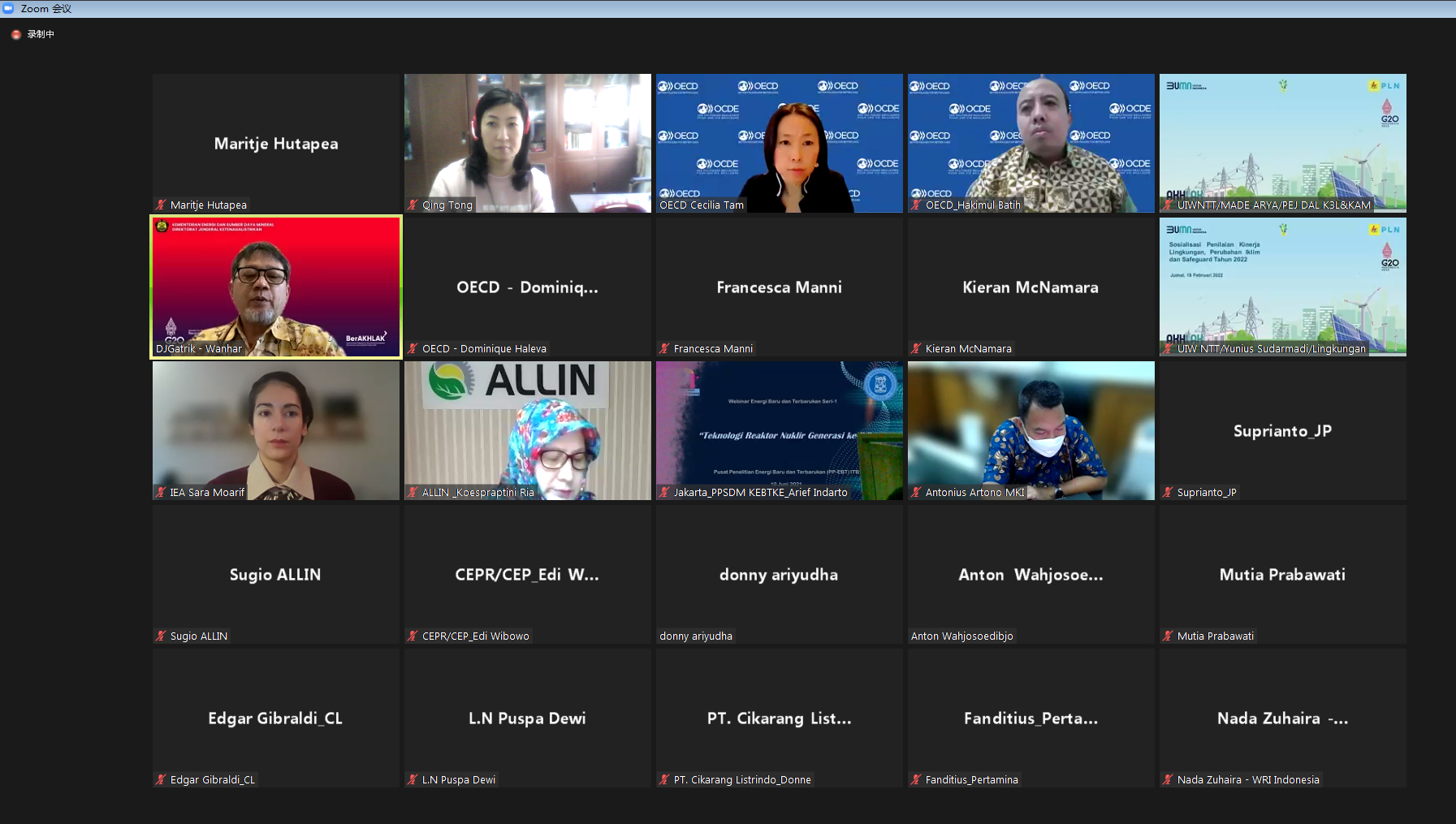The OECD Clean Energy Finance and Investment Mobilisation Programme (CEFIM), along with the International Energy Agency(IEA)held online workshop to discuss the design of an emissions trading system (ETS) and the impact of carbon tax. Tong Qing, the senior engineer of Institute of Energy, Environment and Economics (short for 3E) ,Tsinghua University was invited to attend and delivered a keynote speech.

As a key driver of energy-related emissions, decarbonising Indonesia’s power system will be determinant to achieve the country’s climate objectives. Indeed, under its recently updated nationally determined contribution (NDC), Indonesia aims to reduce its greenhouse gas (GHG) emissions by 29% by 2030. In order to achieve the emission reduction target, CEFIM and IEA are assisting the Indonesian Government’s efforts to develop a domestic emissions trading system (ETS). Indonesia is now looking to set a carbon price for the power and industry sectors in the form a domestic ETS, with a view to helping stimulate and drive investment towards low-carbon energy sources.
Tong Qing, with the title of China ETS pilot phase implementation: Introduction on Beijing Emission Trading Scheme, overviewed the results during the China ETS pilot phase including incentives for participation and lessons on expansion to other sectors.
She said Beijing's ETS has four characteristics: indirect emissions from electricity consumption are counted into emissions reporting and allowances; BETS takes account into the service sectors, such as communications, finance and other services that account for more than 80% of Beijing's industrial structure; precondition of BETS: control on emissions amount; according to the local industry characteristics and development, set local benchmarks for new entrants.
For the future,Tong Qing considered every emissions trading scheme in the world would pass through the approach of “learning by doing”. No matter its future trading market booms or not, the BETS is a useful exploration in the field of developing countries’ actions on climate change, it also will provide practical experiences for the construction of uniformed emissions trading scheme in China (currently only covering the power sector) and even in the world.
Media contact:
F. Tang
3e@mail.tsinghua.edu.cn